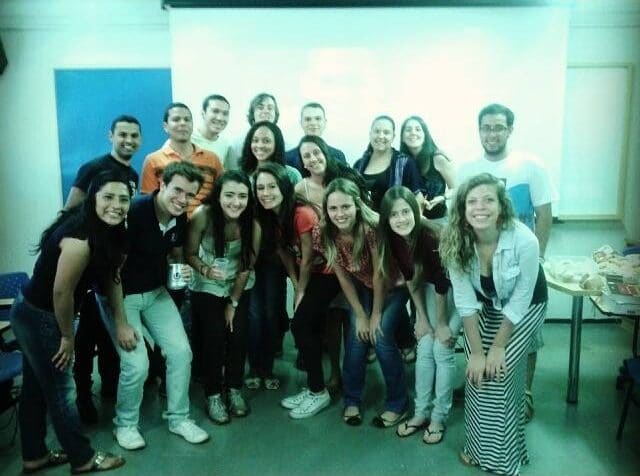
The Fulbright English Teaching Assistantship (ETA) places recent college graduates and young professionals from the United States in classrooms around the world to facilitate the teaching of English. The one-year fellowship, which has opportunities in over 70 countries, is designed to foster intercultural understanding and communication through an immersive cultural experience. In addition to their teaching roles, ETAs serve as ambassadors for the U.S., sharing their culture and forming relationships with residents of their host country. The ages and English abilities of students vary significantly by country and applicants can apply to one country per application.
We talked to Iva Skobic, a 2014 Fulbright English Teaching Assistant to Brazil, to learn more about the fellowship and get some tips for preparing an application.
1. What inspired you to apply for the Fulbright ETA Fellowship?
My first experiences in an English as a Second Language (ESL) classroom were not as a teacher, but as a young learner. My family immigrated from the former Yugoslavia to the United States in 1995, and I was quickly enrolled in a public school with a large ESL program. As often happens with young children, in school I soon forgot that English was not my first language. Ten years later, an incredible French course in Montreal, Canada sparked my interest in pursuing ESL from the other side of the classroom.
After college, I spent a couple of years teaching English domestically (in New York) and abroad (in Colombia), before coming back to complete an MA-ESL. At first, I planned to stay in the US post-graduation, but after my first year all I could think about was going back abroad. The ETA seemed like an ideal opportunity to further my teaching career while exploring what it meant to be a representative of the US abroad.

2. How has the fellowship experience influenced your current work?
I’m currently completing a doctorate in Public Health, with a focus on mental health promotion and psychiatric epidemiology. My interest in health and psychology predates my ETA, but I don’t believe I would be enrolled in a PhD program right now if it hadn’t been for my experiences in Brazil. As part of our grant, my site partner and I were asked to develop and run a conversational English course for our university’s English teacher training program. We collaborated to design lessons that not only targeted gaps in students’ language abilities, but also challenged their critical thinking skills.
Through thought and social experiments, class discussions of academic texts and current events, critical self-reflection using tools such as the Harvard Test of Implicit Associations, and critical evaluation of mass media, we addressed a variety of issues. These included identity, health disparities, stereotyping, gender, sexuality, race relations, and other topics pertaining to self-discovery and social justice. In doing research for my lesson planning, I found myself yearning for time to dedicate to just learning and exploring. After a couple of years of working as an English teacher in the United States and Ecuador after the end of my grant, it became clear it was time to continue my education. Lesson planning in Brazil had confirmed my interest in health and psychology, as well as my desire to continue expanding my understanding of the world and shift my career path toward a health-related field. A PhD in Public Health, where I could gain a broader understanding of the necessary conditions for health, specialize in issues related to mental health promotion, and receive the necessary training for my new career goals, seemed like a great fit.

3. What tips would you give others applying to the Fulbright ETA Fellowship?
Thoroughly research the country to which you are applying as well as the specific type of work ETAs in that country do. Have a clear idea of why you want to go there specifically and make sure you are able to communicate that clearly to the selection committee. Also know whether you would be working at the primary, secondary, or post-secondary level, and whether you’d act as an assistant or primary instructor. Understand and explain why this type of placement would be a good fit for your background, skills, and future goals.

Iva Skobic, MA is a PhD student in the Mel and Enid Zuckerman College of Public Health at the University of Arizona. Before entering the field of public health, Iva taught English Literature and English as a Second/Foreign Language (ESL/EFL) at the high school and university levels in Colombia and New York City. In 2014, she completed a Fulbright ETA at the Universidade Federal de Uberlândia in Uberlândia, Brazil. Upon returning to the United States, Iva obtained a faculty position at the Intensive English Program at Arizona State University. She holds a B.A. in International Studies/Global Security from the University of Wisconsin-Madison and an MA-ESL from the University of Minnesota-Twin Cities.
Interested in applying? Bookmark the Fulbright English Teaching Assistantship your ProFellow account.
© Victoria Johnson 2018, all rights reserved